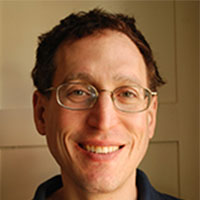James Druckman

- Payson S. Wild Professor of Political Science
- Faculty Fellow, Institute for Policy Research, Northwestern University
James N. Druckman is the Payson S. Wild Professor of Political Science and Faculty Fellow at the Institute for Policy Research at Northwestern University. He is also an Honorary Professor of Political Science at Aarhus University in Denmark. His research focuses on political preference formation and communication. His recent work examines how citizens make political, economic, and social decisions in various contexts (e.g., settings with multiple competing messages, online information, deliberation). He also researches the relationship between citizens’ preferences and public policy, and how political elites make decisions under varying institutional conditions.
Druckman has published more than 75 articles and book chapters in political science, communication, economic, science, and psychology journals. He co-edited the Cambridge Handbook of Experimental Political Science. He has served as editor of the journals Political Psychology and Public Opinion Quarterly as well as the University of Chicago Press’s series in American Politics. He currently is the co-Principal Investigator of Time-Sharing Experiments for the Social Sciences (TESS). He also sits on numerous advisory boards, organizing committees, prize committees, and editorial boards.
Druckman’s work has been recognized with numerous awards including over 20 best paper/book awards; he also has received grant support from such entities as the National Science Foundation, the McKnight Foundation, the Russell Sage Foundation, and Phi Beta Kappa. He was elected to the American Academy of Arts and Sciences in 2012 and also, in 2012, received a John Simon Guggenheim Memorial Foundation Fellowship. His teaching/advising has been recognized with the Outstanding Award for Freshman Advising and an Outstanding Faculty citation by Northwestern’s Associated Student Government.
Druckman obtained his BA from Northwestern, majoring in mathematical methods in the social sciences and political science. He received his Ph.D. in Political Science from the University of California, San Diego.
